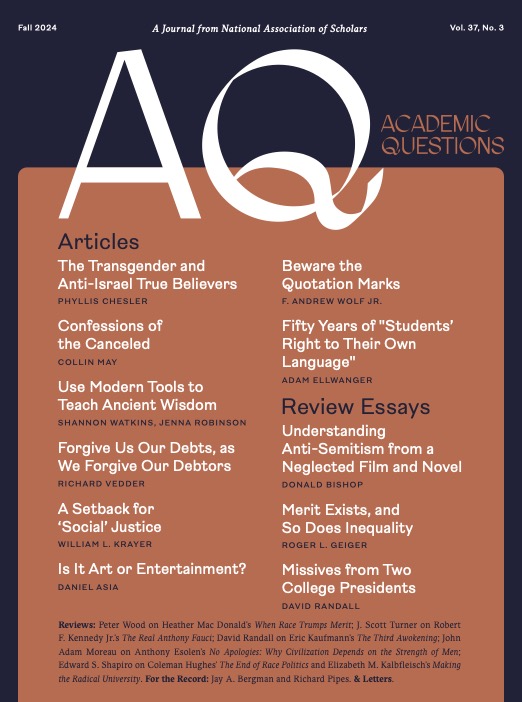Richard Pipes (1923-2018) was the most perceptive and productive historian of Russia and the Soviet Union of his generation. The author of twenty-five books and literally hundreds of articles and book reviews, he also served in 1981-1982 in the Reagan Administration as Director of East European and Soviet Affairs. Pipes’ foundational insight—that Russian rulers, unlike Western kings and dictators, considered themselves proprietors as well as sovereigns, so that Russia was their God-given patrimony—explains better than any other the persistence and uniqueness of Russian national history and culture. The one book he wrote that did not concern Russian history, Property and Freedom (1999), on the centrality of property rights in Western Civilization, explains convincingly why these rights were an essential prerequisite of classical liberalism and representative government.
In addition, Pipes’ magnum opus, a three-volume study of the Russian Revolution of 1917, from its origins in the nineteenth century intelligentsia to the Soviet state Lenin headed until his death in 1924, contains insights and observations relevant to American academia today. An extract from the second volume, entitled The Russian Revolution, is the FOR THE RECORD feature in this issue of Academic Questions.
The principal argument Pipes advances in the extract is historically accurate—that revolutionaries in Russia drew from the Enlightenment in Western Europe in the late eighteenth century the conclusion that man, by virtue of his innate rationality, is capable of self-improvement; one might even believe, as Russian revolutionaries did, in his perfectibility.
From this it follows logically that political change, leading ultimately to social justice, is actually easy to achieve, and that liberals ordinarily committed to gradual reform will find revolutionaries promising radical transformation preferable to conservatives committed to the preservation of the status quo. Pipes rightly excoriates liberals in Russia before and after the Russian Revolutions in 1917, who blindly saw “no enemies to the left,” and by supporting them bore responsibility for their own political destruction.
The reader can surely draw his own conclusions about the relevance of this to intellectuals today. What needs to be added here is why Russian revolutionaries would find the mindset of the Enlightenment so attractive, and how precisely it informed the policies of the Marxist revolutionaries in Russia—for whom their leader, Vladimir Lenin, coined the appellation “Bolsheviks”—after taking power in a coup d’état in October 1917.
In the chapter in which the following extract appeared, Pipes explains the origins, evolution, and legacy of the so-called Russian intelligentsia. When it emerged in the mid-nineteenth century, the intelligentsia was a social category unique to Russia in that its members expressed their personal alienation from the status quo in political protest grounded not in class interests but in a moral and intellectual absolutism that could lead, as it did in the twentieth century, to the application of mass terror. In the teleology Pipes traces in The Russian Revolution and in the volume that followed it, Russia under the Bolshevik Regime (1995), Stalinism was the logical extension not just of Bolshevism and the October Revolution, but of the moral and intellectual fanaticism of the intelligentsia.
To understand this fanaticism, one must bear in mind that when the intelligentsia appeared in Russia, anyone critical of the tsarist autocracy that ruled it had no legitimate means of expressing his opinions. Because Russian tsars viewed their subjects as children too irrational to share in governance, politics as such was effectively forbidden. Indeed, spontaneity of any kind was grounds for suspicion, and under Nicholas I, who ruled as tsar from 1825 to 1855, praising him voluntarily was just as dangerous as condemnation.
In such an environment, ideas could not be tested empirically. As a result, they were adhered to, in their pristine purity, with a fanaticism largely unknown in the West. Coupled with the notion of natural law that the intelligentsia absorbed from the Enlightenment, which held that the moral and political principles found in nature were timeless, absolute, and universal, this peculiarity of Russia’s national history ensured that critics of the existing order—liberals no less than revolutionaries—would likely reject it in its entirety and conjure alternatives to it that were radically different.
The principal legacy of the intelligentsia was a revolutionary movement in the late nineteenth century infused by an intellectual arrogance, a moral absolutism, and a belief in the perfectibility of humanity that rendered the visions its members posited of the future immune to refutation, or even criticism grounded in empirical evidence. Indeed, the fanaticism emblematic of the revolutionary movement extended to means as well as ends: whatever methods were deemed most effective in achieving one’s objectives were morally justified, and it mattered not at all whether these required the killing of millions, thousands, or no one at all. For the Russian intelligentsia, and for the revolutionary movement in Russia that emerged from it in the late nineteenth century, Machiavelli’s famous distinction between means and ends was an artificial one. Instead, the moral virtue of an objective rendered morally virtuous the means that were used to achieve it. In the Latin phrase Georgii Plekhanov, the so-called Father of Russian Marxism, cited to legitimize the harsh measures he would inflict once he possessed the power to do so, salus revolutiae suprema lex. In rough translation, this means that whatever the revolution demands is justified.
It is precisely the fanaticism implicit in the mindset of the Russian intelligentsia, which Pipes traces intellectually to the optimistic rationalism of the Enlightenment, that makes the intelligentsia a proper antecedent of Islamic movements like Hamas and Hezbollah that seek the annihilation of anything in their midst that is different, most obviously Israel, the only democracy in the Middle East and the only country in the region that affords its religious minorities political and civil rights. A similar fanaticism informs the Woke Culture prevalent in American academia today: while thus far mostly non-violent, it nonetheless rejects even the possibility of refutation through reasoned debate, which is often disallowed on the ridiculous grounds that mere exposure to opinions that are different from one’s own can jeopardize one’s sense of physical safety. “Systemic racism,” “white privilege,” “intersectionality,” “settler colonialism,” “transgenderism,” “man-made global warming,”—these are just the most prominent of the vapidities ubiquitous in university curricula and conversation today. In the blind faith in which professors adhere to them and impose them on their students, similarities with Plekhanov, Lenin, and the Russian intelligentsia are unmistakable.
Jay A. Bergman is Professor of History at Central Connecticut State University and serves on the Board of Directors of the National Association of Scholars. His most recent book is The French Revolutionary Tradition in Russian and Soviet Politics, Political Thought, and Culture, published by Oxford University Press.
Photo by Mari Potter on Unsplash














